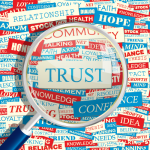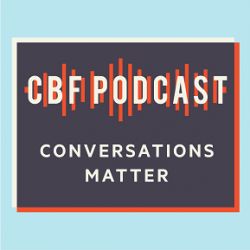By Andy Hale
Editor’s Note: This is the second part in a 3-part series. Read Part 1 here.
Americans Need Something Wholly Different from Tribalism
After one of the most controversial and divisive elections in history, Americans find themselves in a more fractured and polarizing place. The election results are proof in themselves with the country nearly divided in half over each candidate. Yet what is even more telling is nearly half of Americans chose to not even cast a vote.

In the days since the election results, the country has ignited with protests against the President-elect and subsequent anti-protester movements. While there have been protests in major cities, most Americans have experienced the divisiveness of this election in familial, social, faith, and work circles.
In many regards, social media has become the microcosm of our culture. Facebook reported that there were 10 billion election related likes, comments, posts, and shares from March 23, 2015 through November 1, 2016. Election Day had 115.3 million people on Facebook generating 716.3 million elections related posts, likes, comments, or shares.
One can only guess how many Americans on Facebook utilized the unfollow, unfriend, or block features post-Election Day.
While the new direction of America is yet to be determined, one thing is clear, we are more polarized now than one week ago. Americans are retreating to their tribes quickly.
Instead of feelings of superiority, faultlessness, and self-righteousness that are often associated with tribalism, as well as a tendency to surrounding ourselves with people who think, talk, live, speak, work, and believe like us, what Americans need something wholly different.
The Church Must Create a Safe Space for Open Dialogue
One thing is clear, the church must settle into the context of America. However, it must rise above the tribal and divisive tendencies of the prevailing culture. Instead of closing the doors to people who think, live, and act differently, the church has an opportunity to create a safe space for open dialogue. This is an opportunity to create a more diverse theological church community.
What this looks like is worth a lengthy dissertation. We all must recognize and embrace the challenge and patience necessary for creating a safe space for open dialogue. However, let me offer a few suggestions to begin working towards this goal:
Suggestion 1: Check Yourself
Before we can even begin to approach people who see life, politics, theology and the like differently than we do, we need to check our attitude, motives and temperament.
A few questions you might want to introspectively consider: Why am I trying to create diversity? What’s my real end goal? Am I really trying to create a safe space for a multitude of thoughts or am I trying to create a venue to be “right”?
Engaging in dialogue with people who do not see the world in the way you do can create an opportunity for anxiety, frustration, anger and maybe even resentment. Therefore, it is essential that you understand what pushes your emotional buttons. Learn to differentiate between you and others, between your perspective and others’ perspectives, between begin “right” and being open to listen.
Suggestion 2: Build Healthy Community
If your end goal is to have a larger crowd to prove you are right, then maybe it’s not a good idea to create a theologically diverse church.
So consider the goal of creating deeper, fuller, and healthier relationships with people who are also God’s children that happen to see the world differently from you. That’s an excellent motive.
Before we can even dream of dialoguing over theological matters, a mutual trust must be fostered. This may not come through ideological dialogue. It might be achieved through sharing a meal, a cup of coffee, or an adult beverage. Consider doing something that all parties involved enjoy, such as like interest activities (e.g. art, playing sports, underwater basket weaving, etc).
Build healthy community with a diverse group of people in the most natural way that you have built healthy community with your other friendships.
So find ways outside of conversing over various topics to build healthy community.
Suggestion 3: Create Space for Healthy Dialogue
When mutual trust and respect has been carefully built, then it can lead to healthy dialogue.
However, do not assume that everyone knows how to have healthy dialogue. The group must define the guidelines for healthy conversation and the goal of the dialogue, such as:
- I am not trying to be right. I am trying to be a cohesive, effective, and community-centered.
- Before speaking, I will consider reasons for speaking. What is my intent? What am I really trying to gain?
- When I speak, I am talking about a particular viewpoint, not particular people.
- I will give kind-spirited and gracious suggestions.
- I will listen without interrupting, keep an open mind, and truly listen without thinking about how I want to respond.
- I will not take someone’s alternative perspective as a personal attack.
- I will watch my body language. Nonverbal communication is part of delivering feedback.
- I will ask for clarification instead of making assumptions.
- I will keep an open mind, allowing myself to see the world from a different perspective.
- I will one-time share, allowing others to share the dialogue.
- I will respect the right to disagree respectfully.
Have the group covenant together to hold to these guidelines and goal.
Aesthetics matter. You should consider where you will meet, what the gathering space will look like, how and where people will sit, how hospitality comes into play, and how long you will meet. A lack of or sense of comfort will make or break healthy dialogue.
Andy Hale leads Church Starts Initiative of the Cooperative Baptist Fellowship. Hale is a CBF church starter who serves pastor of Mosaic of Clayton in Clayton, N.C. For more information about CBF’s Church Starts Initiative, click here. Subscribe to the CBF Church Starts Conversation Podcast in iTunes.











